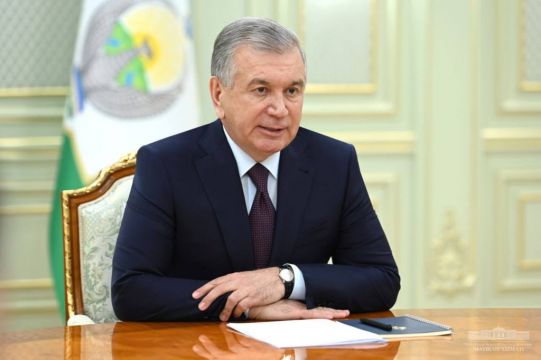Voters in Uzbekistan are casting ballots in a referendum on a revised constitution that promises human rights reforms but will also allow the country’s president to stay in office until 2040.
With elections in Uzbekistan widely regarded as non-competitive, approval appears certain and supporters of the changes have conducted an array of promotional events featuring local celebrities.
With four hours until the polls closed, the central elections commission reported turnout at more than 62%, well above the 50% threshold for the referendum to be valid.
The proposed changes include lengthening the presidential term from five to seven years, while retaining the existing two-term limit. But although President Shavkat Mirziyoyev is currently in his second term, the change in term length would allow him to run twice more after his current tenure ends in 2026.
Other changes include abolishing capital punishment and boosting legal protections for citizens, including those accused of crimes.
Under Mr Mirziyoyev’s predecessor Islam Karimov, Uzbekistan was one of the region’s most repressive countries.
Mr Mirziyoyev, who took over after Mr Karimov died in 2016, touts the constitutional changes as showing that Uzbekistan will make freedoms and human rights paramount.
The referendum was originally planned for last year, but was put off in the wake of unrest in the Karakalpakstan region when it was announced that the changes would include rescinding the area’s right to vote on whether to secede.
Although the likelihood of secession is very small, the proposal angered residents of the poor and environmentally beleaguered republic that makes up a third of Uzbekistan’s territory but holds only about 5% of the country’s 36 million people. Mass unrest broke out in the Karakalpak capital Nukus, and at least 18 people died in clashes with police.
The new package being voted on on Sunday retains the Karakalpakstan secession right.







